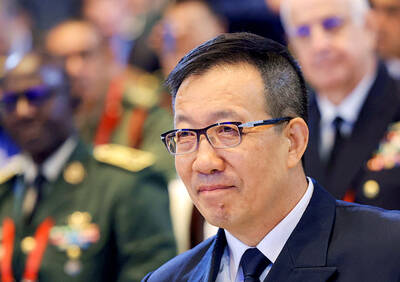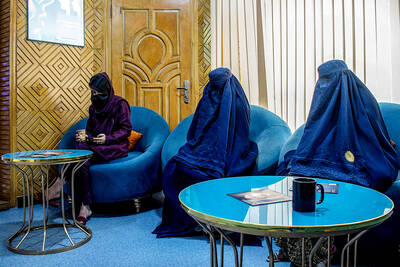It had been considered extinct for nearly 80 years, but the Tasmanian tiger has been declared alive and kicking by an intrepid group of British naturalists.
A team of investigators from the Centre for Fortean Zoology, which operates from a small farmhouse in Devon, England, is currently in Tasmania hunting down clues to prove the thylacine, commonly known as the Tassie tiger, still exists.
The group claims to have gathered compelling evidence of the thylacine’s presence in remote parts of the island’s northwest, despite the last known animal dying in Hobart Zoo in Tasmania on Sept. 7, 1936.
The center said it has talked to several “highly credible” witnesses of the thylacine and has found animal feces that could belong to the beast. The droppings have been preserved in alcohol and are being sent away for DNA analysis.
The cryptozoologist team, which has previously attempted to find the yeti and boasts that it has evidence of a mysterious Indonesian ape that walks on two legs, is one week into a two-week trip to discover if the thylacine still exists.
Richard Freeman, the organization’s zoological director, told the Guardian’s Australia edition that he has “no doubt” the species still roams isolated areas of Tasmania.
“The area is so damn remote, there are so many prey species and we have so many reliable witnesses who know the bush that I’d say there is a reasonable population of them left,” he said. “I’d say there are more of them around in the world than Javan rhinos.”
The WWF estimates that there are just 35 Javan rhinos left.
Freeman said he had spoken to a forestry worker who had seen an animal in daylight in 2011 which was distinctive because of its striped rear end, long stiff tail and “weird rolling motion, almost like a cow” when it walked.
A Tasmanian government wildlife marksman and several local people had spotted the same distinctive type of animal in recent years, Freeman added.
He said no paw prints or dead thylacines have been found, attributing this to the sparse rocky ground of the region and the ferociousness of Tasmanian devils, which swiftly devour animal corpses when they discover them.
However, Freeman said he had heard reports of distinctive thylacine kills, where prey is effectively disembowelled, as well as the discovery of the droppings.
“If we get the DNA from them, that’ll be interesting,” he said. “They are far too big for a Tasmanian devil and it can’t be a dog. Why would a dog be so far out there? It’s a very remote area.”
The thylacine, which looked much like a striped, elongated dog, was zealously hunted by European settlers. They were trapped, snared, shot and poisoned, due to fears the animal would ravage sheep stocks.
Several attempts have been found to prove the animal still exists, although the Tasmanian government states that there is “no conclusive evidence” it lives on.
That will not deter Freeman, who plans several return trips to prove mainstream science wrong.
“I’ll be coming back again and again,” he said. “The people who say they’ve seen it have nothing to gain and everything to lose. I’d say there is a population of at least 300 of them.”

BEIJING FORUM: ‘So-called freedom of navigation advocated by certain countries outside the region challenges the norms of international relations,’ the minister said Chinese Minister of National Defense Dong Jun (董軍) yesterday denounced “hegemonic logic and acts of bullying” during remarks at a Beijing forum that were full of thinly veiled references to the US. Organizers said that about 1,800 representatives from 100 countries, including political, military and academic leaders, were in Beijing for the Xiangshan Forum. The three-day event comes as China presents itself as a mediator of fraught global issues including the wars in Ukraine and Gaza. Addressing attendees at the opening ceremony, Dong warned of “new threats and challenges” now facing world peace. “While the themes of the times — peace and development —

Venezuela on Saturday organized a day of military training for civilians in response to the US deployment in the Caribbean, and amid new threats from US President Donald Trump. About a month ago, Washington deployed warships to international waters off Venezuela’s coast, backed by F-35 jets sent to Puerto Rico in what it calls an anti-drug and anti-terrorism operation. Venezuelan Minister of Defense Vladimir Padrino Lopez has accused Washington of waging “undeclared war” in the Caribbean, after US strikes killed over a dozen alleged drug traffickers off his country’s coast. Caracas also accused the US of seeking regime change, and

Decked out with fake crystal chandeliers and velvet sofas, cosmetic surgery clinics in Afghanistan’s capital are a world away from the austerity of Taliban rule, where Botox, lip filler and hair transplants reign. Despite the Taliban authorities’ strict theocratic rule, and prevailing conservatism and poverty in Afghanistan, the 20 or so clinics in Kabul have flourished since the end of decades of war in the country. Foreign doctors, especially from Turkey, travel to Kabul to train Afghans, who equally undertake internships in Istanbul, while equipment is imported from Asia or Europe. In the waiting rooms, the clientele is often well-off and includes men

BRIBERY ALLEGATIONS: A prosecutor said they considered the risk of Hak-ja Han tampering with evidence to be very high, which led them to seek the warrant South Korean prosecutors yesterday requested an arrest warrant for the leader of the Unification Church, Hak-ja Han, on allegations of bribery linked to the country’s former first lady and incitement to destroy evidence. The move came a day after the 82-year-old was questioned over her alleged role in bribing former first lady Kim Keon-hee and a lawmaker. Founded in 1954 by her late husband, Sun Myung Moon, the Unification Church has long been the subject of controversy and criticism, with its teachings centered on Moon’s role as the “second coming” and its mass weddings. Followers are derisively referred to as “Moonies.” However, the church’s